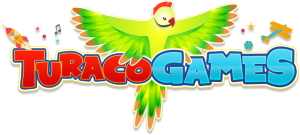Gerunds and Infinitives – ESL Grammar Game
Practice using gerunds (-ing) and infinitives (to) with this ESL grammar game. Click the play button to begin.
Gerunds & Infinitives – Gerunds are verbs that function as nouns. They end with –ing. Meanwhile infinitives are formed with the word ‘to’ in front of the verb. Both gerunds and infinitives can be used to replace a noun in sentence. Since they act as nouns, they can become the subject of sentence.
The following examples help illustrate how they work as subjects of a sentence:
- Jogging is a good form of exercise.
- To jog is a good form of exercise.
- I like swimming.
- I like to swim.
- Gerunds – best for use in sentences where action is complete or have been completed, or real. For example – I stopped answering the phone. Here it means I was answering the phone all along and now I just completed answering the phone and moved on to something else.
- Infinitives – best for use in sentences about actions that will either occur in the future, are unreal or simply abstract. For example – I stopped to answer the phone. Here it means I was in the middle of something, then first I stopped, then I answer the phone next.



 (11 votes, average: 3.55 out of 5)
(11 votes, average: 3.55 out of 5)





